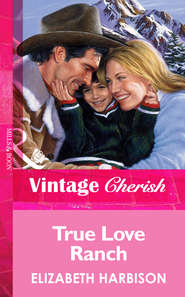По всем вопросам обращайтесь на: info@litportal.ru
(©) 2003-2025.
✖
Wife Without a Past
Автор
Год написания книги
2018
Настройки чтения
Размер шрифта
Высота строк
Поля
“Try me.”
Drew hesitated, then shrugged. “I just saw Laura.”
There was a long silence.
“Laura?” Vince echoed at last.
Drew nodded and rubbed his eyes with his thumb and index finger.
“As in…your Laura?”
Drew tightened his lips and nodded. “Yup. Chased her all the way across town. Ready to commit me?”
Vince’s screwed up his brow. “You just saw Laura. Uh-huh. What was she doing?”
“Window-shopping mostly.” Drew thrust his hands into his pockets. “And then she went for a ride in a cab. So—” he puffed air into his cheeks, then blew it out “—ready to get back in to work?” He started to walk toward the office building.
Vince put a hand up to stop him. “You just saw Laura shopping and riding in a taxi and now you want to go back in to work?”
Drew raised his shoulders. “I considered chasing the cab but I’m not as fast as I used to be, you know. I can hardly ever run fifty miles an hour anymore.” His flippant tone belied the trembling in his chest
Vince shook his head and fell in step beside Drew. “I don’t get this. Is it April Fool’s Day?” He looked at his watch. “No, it’s May. What’s going on, man? Do you need a visit with the old head shrinker, or are you pulling a joke on me?”
“Neither.” Drew clapped Vince on the shoulder. “I saw a woman who looked just exactly like Laura. Exactly. But she slipped away before I got a chance to see her up close.” Or I let her slip away, he thought. I let her slip away all afternoon because I was afraid to know for sure one way or the other.
“But you do know it couldn’t have been Laura. I mean, it’s been more than a year since—”
“A year and three months.” Drew nodded. “I know. I haven’t totally lost my mind. It was obviously a case of mistaken identity.”
“That’s it.” Vince’s voice was just a little bit too patronizing.
Drew ignored it. “I probably just need a good long rest. I thought maybe Samantha and I would go up to Vermont for a while.”
“That’s not such a bad idea,” Vince said. “You’ve always been a major workaholic, but over the past year you’ve been killing yourself working here and at home. Tell you what, I’ll go with you guys. How about Disney World?”
Drew stopped. “I appreciate the offer, but I was thinking of the mountains. Samantha’s been making noise about seeing them.” He sighed, thinking about her, then shook his head. “I owe her something special. She’s the most precious thing in my life. If it weren’t for her, I don’t know what I would have done this past year.”
Vince gave him a dismissive slap on the back. “Well, you got through it, man.” Obviously he was eager to brush Drew’s momentary lapse in sanity under the carpet.
Did I? “I guess I did.”
“And today you just saw someone who looked a lot like Laura. Not actually Laura herself.” Vince tried to give a little laugh, but it sounded to Drew more like a dismissive cough. “Because, you know…”
“I know.” Their eyes met. Yes, Drew knew. He knew all too well. He’d had more than a year to get used to the idea, to accept it and go on with his life.
Laura Bennett, his beautiful young wife and the mother of little Samantha, had been dead and buried for more than a year.
Chapter Two (#ulink_10890418-edcf-5467-ad95-23b6804a51fa)
The rest of the day passed slowly for Drew. He got nothing done in the way of work. Instead, he spent most of his time looking out the window at the breezy May afternoon. The brilliant sun shining through the old mottled window threw prisms of color across the floor.
He could picture the exact color of Laura’s hair in sun like this—it was the color of a copper penny, gleaming as if newly minted. And her eyes, almond shaped, were the palest of blue. Not the emerald green of Irish stereotype, but blue like the sky on a clear summer morning.
It wasn’t her, he told himself. It couldn’t have been. That’s impossible. But the truth was he found it harder to believe it wasn’t her. He’d never been one to experience hallucinations or to imagine things. And his eyesight was perfect, though he was hardly likely to assume someone was Laura, no matter how great the similarity, without some good solid detail.
He closed his stinging eyes tightly, then opened them and looked out the window again. He couldn’t stop picturing Laura in the sunny spring day. It had taken more than a year to stop thinking of her every hour of every day. Now there was a look-alike out there somewhere. It made him want to barricade himself in his house and never go out again, never take a chance on seeing that woman—whoever she was— again. He wasn’t sure he could survive another delve into that sort of grief.
He wasn’t the only one who couldn’t go through it again. His eyes fell on a picture on his desk. It was a little girl with auburn hair and blue eyes, smiling into the camera and right into his heart. Samantha, his daughter. Sam, Laura had called her. Like in Green Eggs and Ham, the Dr. Seuss book. “I do not like green eggs and ham, I do not like them, Sam I am.”
He could still hear Laura’s musical voice, like a ghost in the hall, reciting the words.
He remembered every word of the book even though he hadn’t picked it up since the day of the accident. She’d left it on the kitchen table after reading it to Sam at breakfast. When he’d come home that afternoon, after a tinny voice on the telephone had informed him that she’d been killed in a crash on 1-95 just over the Connecticut state line, the book had still been sitting open on the kitchen table.
For some reason, that had struck him as proof that she was coming back. It was all a bad dream, of course. Laura was coming back; she hadn’t finished reading Green Eggs and Ham to Sam. It was impossible to imagine that she wouldn’t come back and pick it up right where she’d left off. And something in his mind told him that if he just left the book there, didn’t touch it, she would come back to it.
That had only lasted a few hours, though. When he came back from the coroner’s office in Connecticut late that night, his secretary, Mindy, had already tidied up and put the book back on the bookshelf with hundreds of others. That small fact alone had clinched it for him. The spell of shock and disbelief that had suspended his grief was broken.
Laura was dead. She’d walked out on him without warning or explanation early, one February morning. That alone was baffling enough, but she hadn’t just left Drew, she’d also left their three-year-old daughter behind. She’d read the book to her, taken her to preschool and then kept on driving. It was so unlike Laura that to this day he couldn’t figure it in to his acceptance of her death.
But during those last few months, she’d done a lot of things he would have thought were unlike her. And there were insecurities, accusations, suspicions. He’d realized she was upset, but he’d had no idea she was upset enough to leave her family.
But she had. And only hours later she was pronounced dead in a hospital two hundred miles away. There was never an opportunity for explanations or restitution.
The long months had plodded by to the present. Drew’s eyes focused on the picture of Sam again. He often wondered just how much she remembered about her mother. She’d been so young when it had happened—barely three. At first she’d felt the loss constantly. It had been hell having to explain to her over and over again that, no, Mommy wasn’t coming back. Sam seemed to think that was a concept that had flexibility. Mommy wasn’t home one day but maybe the next—when she really wanted to show her a new drawing—she would be back.
Drew picked up a pen and started sketching absently on the ink blotter in front of him.
Gradually Sam’s memories seemed to have faded. Now she merely asked questions about Laura. What was she like? Was she nice? Was she pretty? Drew never knew if she’d truly bounced back and lost those young memories, or if she didn’t remember because she didn’t want to remember.
Just like Drew didn’t want to. Because remembering was too painful.
He added a couple of lines to his sketch. A cloud. He couldn’t blame Laura for leaving, though. Not entirely. He’d had a lot of time to think about it, and had realized many regrets of his own. There were too many things he should have said but didn’t. Perhaps worse, there were too many things he shouldn’t have said but did. Sometimes he felt he was as responsible for her death as the car accident had been.
If he had it to do over again, he would have done things so differently.
But he didn’t have things to do over again. That had been the hardest lesson to learn over the past year; he had to accept that she wasn’t coming back and that his regrets were useless.
Drew looked back down at what he’d been doodling. It was a very rough sketch of the children’s beach, near the Port Authority. He added a few lines to the water. Laura had always liked to go there and watch the boats come and go. He hadn’t been there in months, hadn’t even thought about it until now. Of course, he hadn’t drawn anything other than lines and angles in as long, either. He started to sketch her into the picture, then slapped the pen down on the desk. Laura was dead, and like the rest of the dead population, she was going to stay that way. He had to accept it.
Mary Shepherd fingered the ring on the street vendor’s cart. It was an Irish Claddagh ring. She knew because one of the women at the shelter had worn one when she’d arrived. She’d come in with it symbolizing attachment to a man who abused her. By the time she’d left, healed and renewed, she’d turned it to symbolize a woman alone. The ring and its meanings had always appealed to Mary in some strange way that she couldn’t quite name.
Of course, there were a lot of things Mary couldn’t quite name. Herself, not the least of them.
For a year now she’d been Mary Shepherd because she’d woken up in St. Joseph’s Memorial Hospital in Connecticut with a horrendous head wound, rope burns on her wrists and ankles and no memory of how any of it had happened. No memory of her life before. She wore no wedding ring, but her left ring finger was creased as though she’d worn a ring there for a long time and only taken it off recently. But she didn’t even know her name, much less what sort of ring she might have worn.
“Psychogenic amnesia,” the doctors had called it. Her reaction to a trauma so great she couldn’t bear to remember it. Could last a month, could last forever. There was no way to tell.
Mary’s money was on forever. Because in fifteen months she’d had no memory—good or bad, recent or distant—beyond small instinctive pulls. Like the one that had brought her to Nantucket. She had such an affinity for water that the women at the shelter where she lived and worked had teased that she was probably a navy captain in charge of hundreds of men at sea, and who wouldn’t want to forget that? But when she’d seen the pictures of Nantucket in the travel agent’s window, she’d known that she had to see it in person. It had to be Nantucket, not Cape Cod, not Bayville, but Nantucket.











